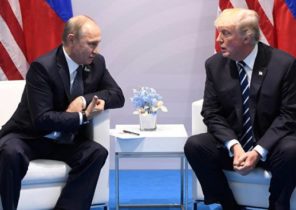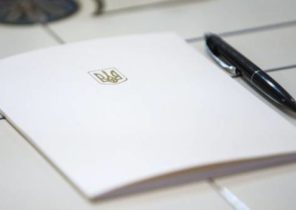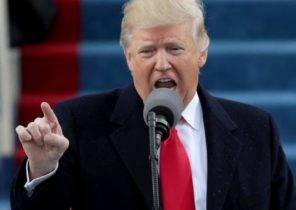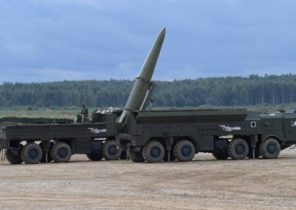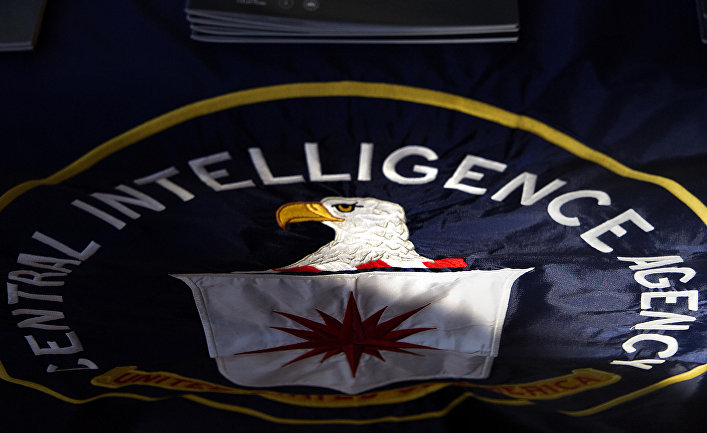
I hate to agree with Vladimir Putin, even in a small. The President of Russia pulls back their country — the country where I was born, and hypocritically claims that the violation of international law in some way useful to the Russians. But the hysterical American reaction to alleged Kremlin’s attempts to influence the presidential elections in the USA made me look at things from the point of view of Putin.
Of course, the allegations of us intelligence that Russia is distributing fake news and published emails hacked from ‘ to weaken the position of Hillary Clinton in the fight with Donald trump, not groundless. Undoubtedly, this is Putin-style — steal sensitive data and engage in misinformation; in the end, he was a KGB officer.
Similarly, the allegations that Putin has a file with the dirt on trump, too, seem plausible, even if they are not confirmed. It is unlikely for Russia makes sense selectively protected from their machinations it trump. And, if not restricted by trump, Republican leaders must know that if Russia hacked emails of the Democrats, and the Republicans server probably has been hacked.
Even if the sensational details of the alleged dossier is invalid, it is likely that Russia has at least some incriminating information about business trump or even his tax returns — information that trump tried very hard to keep secret from the American public. If trump will not behave well, taking the side of Russia in a wide range of issues, from NATO to Ukraine, most likely, his mysteries shall be unveiled exactly the same as the mystery Clinton.
The US reaction to this prospect has been controversial. Solid supporters trump ready to enjoy fragile “male friendship” between trump and Putin, despite the fact that these relationships are clearly vulnerable to exploitation from both sides. Others, including some high-ranking Republicans, quoted newly released US intelligence report on alleged Russian interference in the election and call for strict measures against the Putin government, despite the fact that a new cold war is clearly not in anyone’s interest.
In my opinion, is the intelligence report itself was initially problematic. Full of speculation and bias, it is based on the fact that Putin must be the enemy, because he does not share Western values. But how can they share? In the world order of the Western sample, the presence of Russia has never been particularly desirable, and the more she could not be his equal participant. That is why Putin wants to create their own international order.
In fact, at the beginning of his presidency, Putin wanted Russia to become part of Europe. But he was immediately faced with the expansion of NATO to the Baltic States. In 2006, the administration of then-President George Bush announced plans to establish missile defense in Eastern Europe to protect the Western allies against Intercontinental missiles from Iran. Russia considered the plan — which President Barack Obama implemented last year ‑ as a direct threat and a sign that any calls for closer ties should be viewed with caution.
The United States supports the anti-Putin forces in 2008, but increased this support in 2011 when Putin, at that time Prime Minister, was preparing to return to the presidency. In 2013, the United States welcomed the protests in Ukraine that eventually led to the overthrow of Pro-Russian President Viktor Yanukovych. But even though Yanukovych was undoubtedly a crook, the US supports many other rogues. And so the denial of the right of Russia (or any other power) to be equally odious henchmen — it’s pure hypocrisy on their part.
This hypocrisy permeated the entire US foreign policy. Bush started a war in Iraq based on biased intelligence. In turn, Obama supported the uprising of the “Arab spring”, but did not suggest any Pro-democracy strategy — and because of this approach, Libya has become a failed state, Egypt has become even more of a dictatorship, and Syria plunged into a terrifying protracted conflict. Meanwhile, the national security Agency is spying on US all, whether friend or foe.
The U.S. intelligence report stated that Putin seeks to undermine liberal democracy. It seems clear, however, that his more immediate goal was to expose the double standards of the West, thereby destroying the West erected barriers to defend Russian interests. If the USA can behave so badly and not apologize to anyone, thinks Putin, why Russia has no right to its sphere of influence, say, in Ukraine?
For that matter, why would Putin not to try to help Trump? The Ukrainians played for Clinton, believing that it will advance their interests. It is logical that Putin chose trump, who has repeatedly expressed admiration for his leadership, not Clinton, who compared him with Adolf Hitler.
The idea that he should not take action
to protect their interests, there is an ideological bias under the guise of objectivity, and this lends credence to the statements of Putin that the West is hostile to him.
Don’t get me wrong: despite its shortcomings, the United States remains a positive force in the world. In fact, they may be the only clearly positive force, along with the European Union, which should stop squabbling and, finally, to rein in anti-liberal leaders with delusions of grandeur, such as admiring Putin, Prime Minister of Hungary Viktor Orban.
Further, the prospect that the new US President — pocket figure of Putin, of course, should worry Americans. And policies of the West towards Russia — economic sanctions or military exercises near the border countries like Poland are not necessarily bad. The bad thing is that this concern and policy measures, due mainly to the anger of Putin’s nationalism and not careful assessment of the diplomatic and strategic situation.
If the United States will give yourself to get caught up in the suspicions and the speculation about the intervention of Russia in the recent elections, is likely to be trapped in an even more destructive confrontation with Putin. Instead, the US must develop a thorough, thoughtful and balanced approach to Russia, one that appeals to values are not as propaganda, but as a basis for more honest and trustworthy foreign policy.
